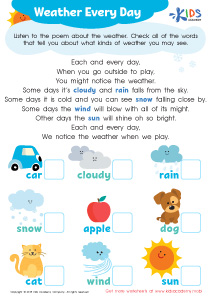Vocabulary development Preschool Letter Sounds Worksheets
4 filtered results
-
From - To
Enhance your preschooler's vocabulary development with our engaging Letter Sounds Worksheets! Designed for early learners, these resources focus on fundamental phonics skills, helping children connect letters to their corresponding sounds. By integrating fun activities and colorful imagery, our worksheets make learning exciting and interactive. Practice letter recognition, sound association, and essential vocabulary words together to build a solid language foundation. Ideal for both classroom settings and at-home learning, these worksheets cater to various learning styles, accommodating unique developmental needs. Support your child's early literacy journey and watch them flourish as they begin to read and communicate confidently! Explore our printable worksheets today.
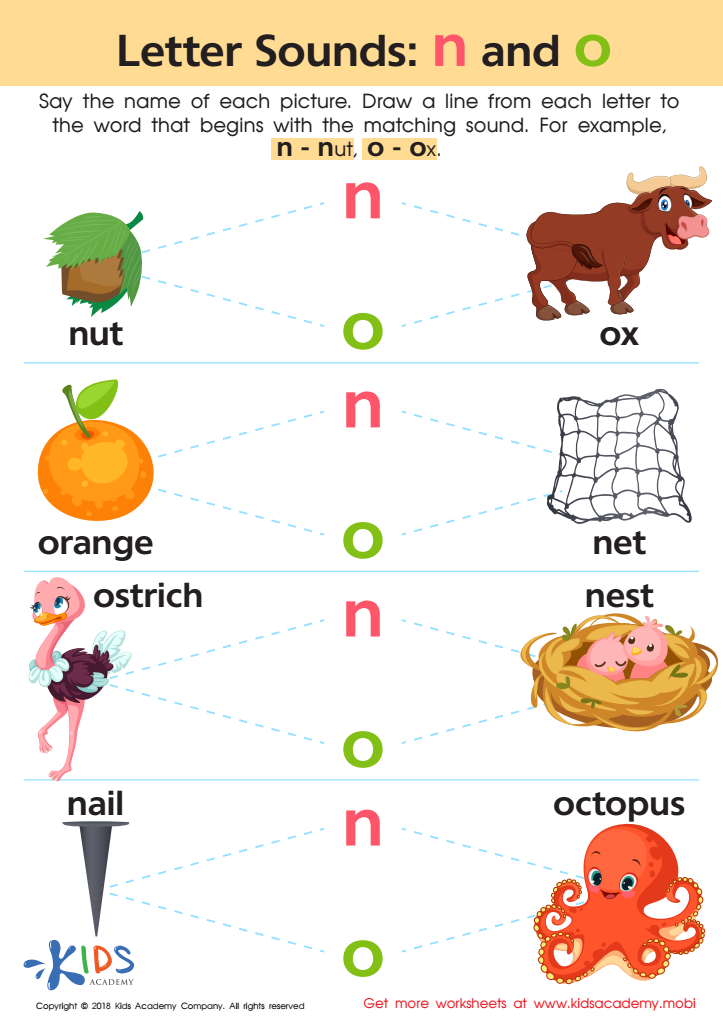

Letter N and O Sounds Worksheet
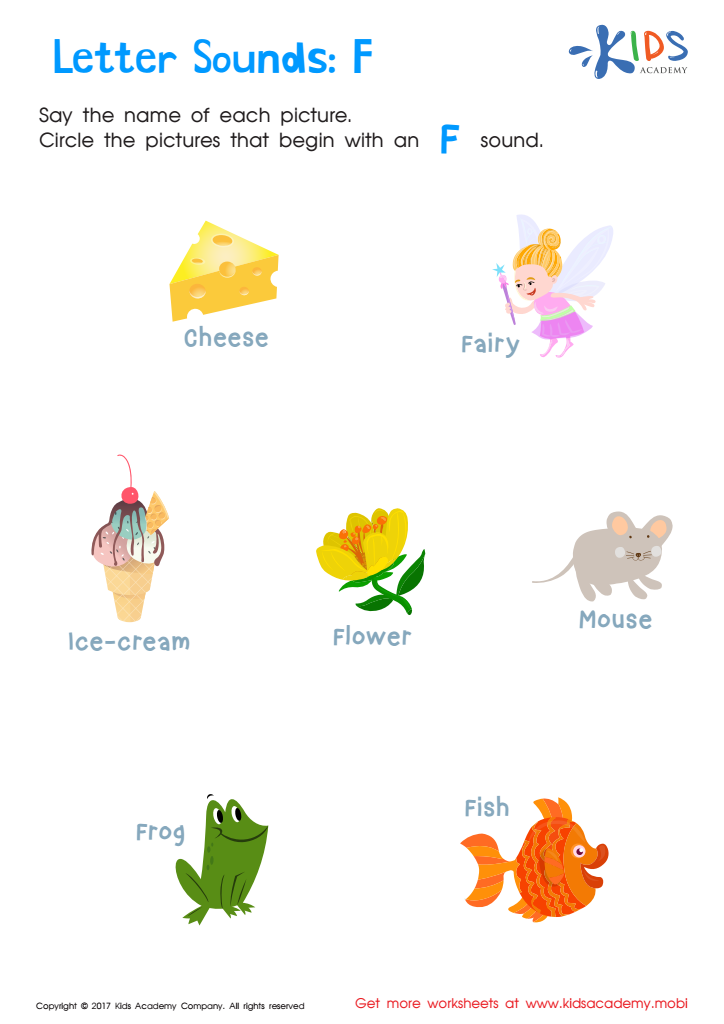

Letter F Sounds Worksheet
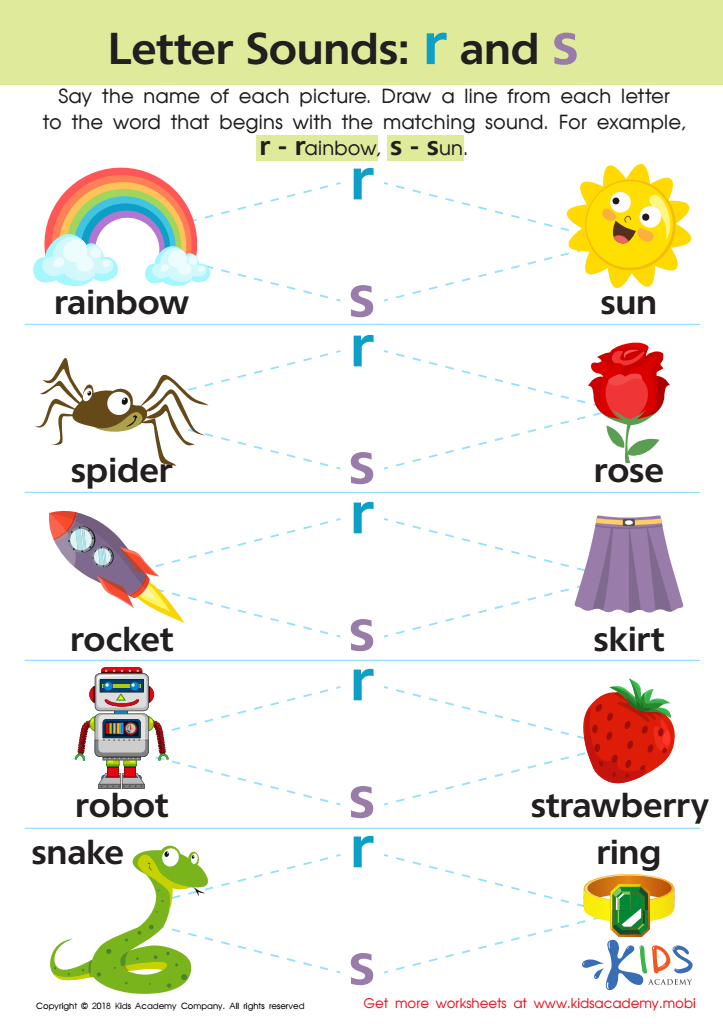

Letter R and S Sounds Worksheet
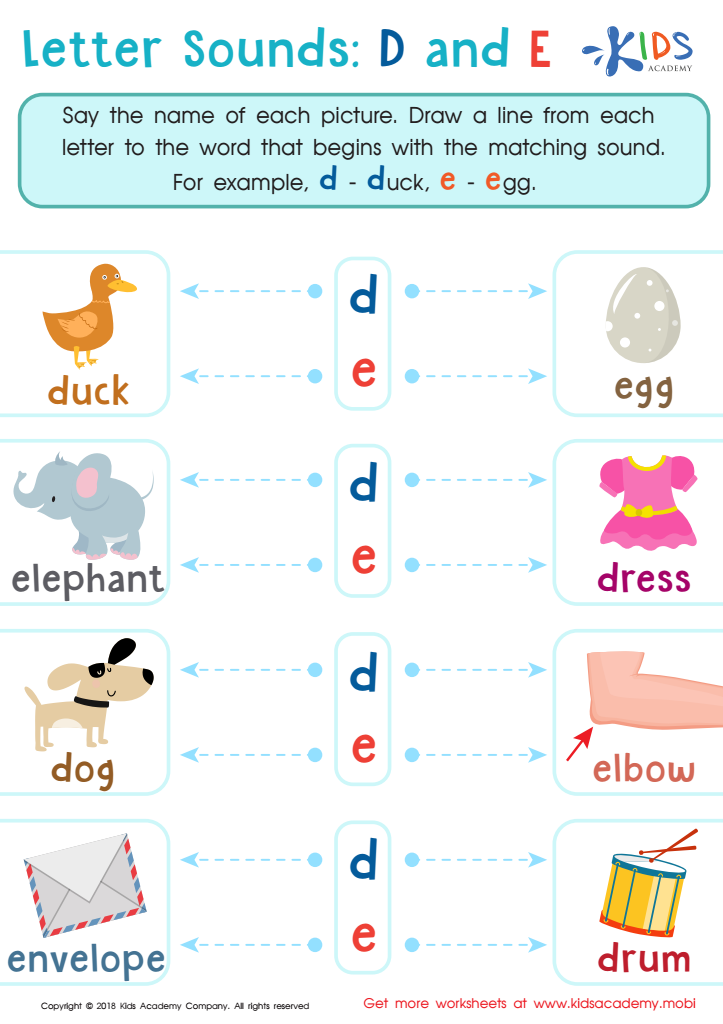

Letter D and E Sounds Worksheet
Vocabulary development and letter sounds are fundamental components of early literacy that play a critical role in a child's overall educational journey. Preschool-aged children are at a crucial stage for language acquisition, and a rich vocabulary lays the foundation for effective communication and literacy skills. When parents and teachers prioritize vocabulary development, they equip children with the tools needed to express their thoughts and feelings, enhancing both social interactions and emotional intelligence.
Understanding letter sounds is equally important, as it directly contributes to phonemic awareness—the ability to hear, identify, and manipulate sounds in spoken language. This skill is essential for reading proficiency later on. When children learn letter sounds, they unlock the ability to decode words, improving their reading fluency and comprehension. A strong grasp of vocabulary and letter sounds fosters confidence in young learners, encouraging a lifelong love for reading and learning.
Furthermore, children with a robust vocabulary and sound-letter recognition tend to perform better academically. They are more prepared to tackle complex concepts in later grades. Therefore, parents and teachers should actively contribute to nurturing these skills, recognizing that their efforts play a significant role in shaping children's future success. Prioritizing vocabulary and letter sounds is an investment in a child's educational journey.

 Assign to My Students
Assign to My Students










